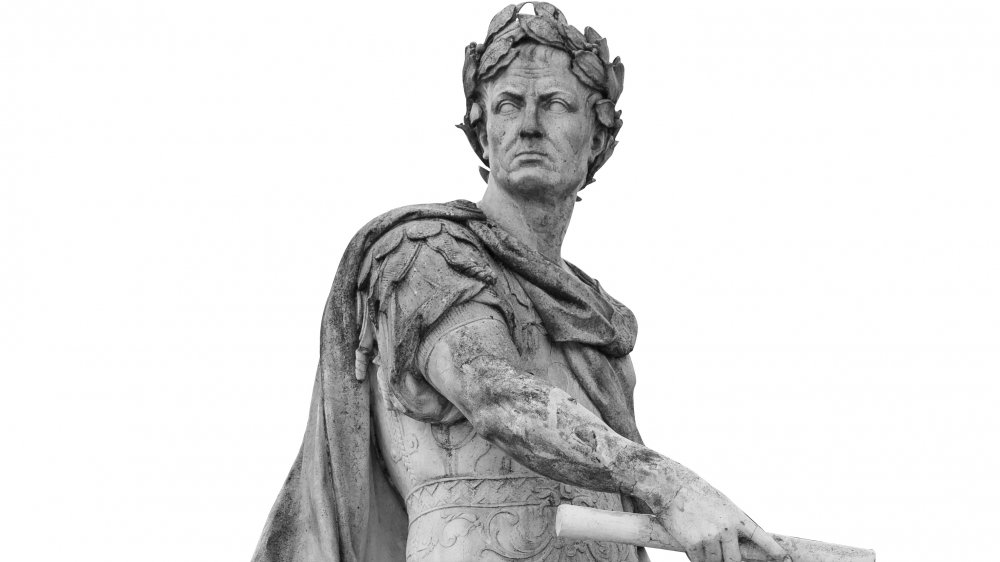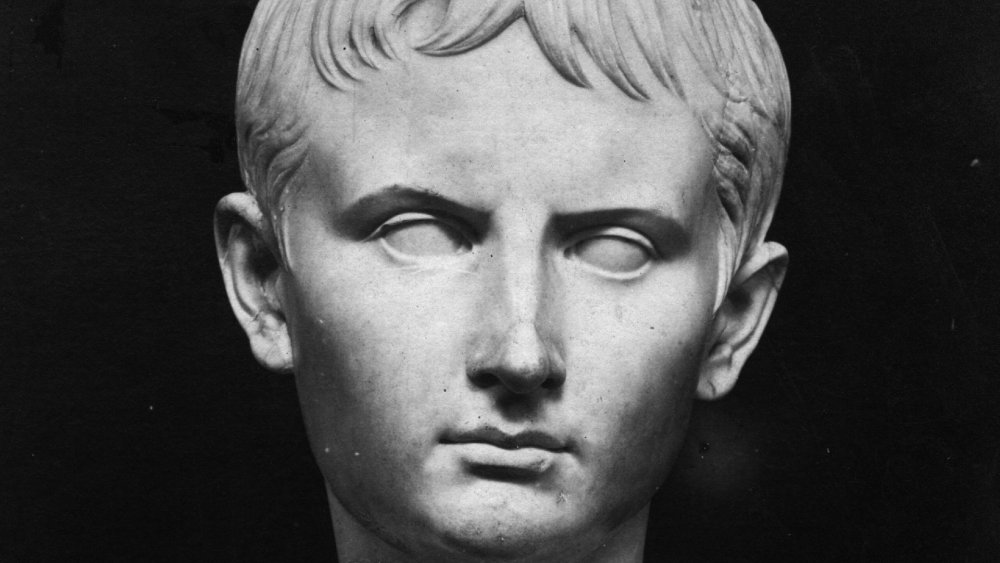Why Julius Caesar Wasn't Really An Emperor
Gaius Julius Caesar is known for having been a statesman who changed the course of history. Per Britannica, he was a general who overthrew the long reign of Roman nobility and replaced it with a dictatorship. (He came, he saw, he conquered, or in his words, Veni, vedi, vici.) The month of July is his namesake. He died a martyr who was killed by an angry mob which included his close, trusted friend and former enemy, Marcus Junius Brutus, to whom he addressed his final words — "Et tu, Brute?" — with his dying breaths. What he wasn't, however, was an emperor. At least, not technically.
According to 2011's The Caesars, Julius didn't use the term "emperor," despite serving as the head of Rome following his hostile takeover of what had been the Roman republic. Upon learning of Julius's murder in 44 BCE, his nephew, Gaius Julius Caesar Octavianus, later known as Augustus Caesar, found out that he had been adopted as Caesar's son and named as his heir, according to Britannica. Just 18 years old, he left his studies in modern-day Albania and returned to Rome, where he formed the Second Triumvirate of Rome with Mark Antony and Marcus Lepidus. This soon fell apart when Mark Antony famously took up with Cleopatra. Lepidus fell from power, Augustus waged war against Cleopatra (and, by extension, Antony), and emerged victorious as the first emperor of the Roman Empire from 37 BCE until 14 CE.
Why were actual emperors called Caesar?
Per Britannica, Augustus didn't use the title "emperor." If this is the case, why is he considered the first official emperor of the Roman Empire, if Julius was also an emperor in all but name? According to the BBC, Augustus didn't follow his adoptive father's example. Instead of making himself a dictator, he "founded the principate, a system of monarchy headed by an emperor holding power for life."
Further confusing the issue is the fact that "Caesar" became a title used by the eleven Roman emperors that followed Julius Caesar's rule. As explained in the World Heritage Encyclopedia, Augustus emphasized his relationship with the original Caesar by styling himself as "Imperator Caesar." When his stepson Tiberius succeeded him as emperor and became known as "Tiberius Julius Caesar," this set the precedent of the Emperor designating a successor by adopting him and giving him the title "Caesar." The fourth emperor, Claudius, was the first to use the title "Caesar" without being adopted by the previous emperor, although he was already a family member.

